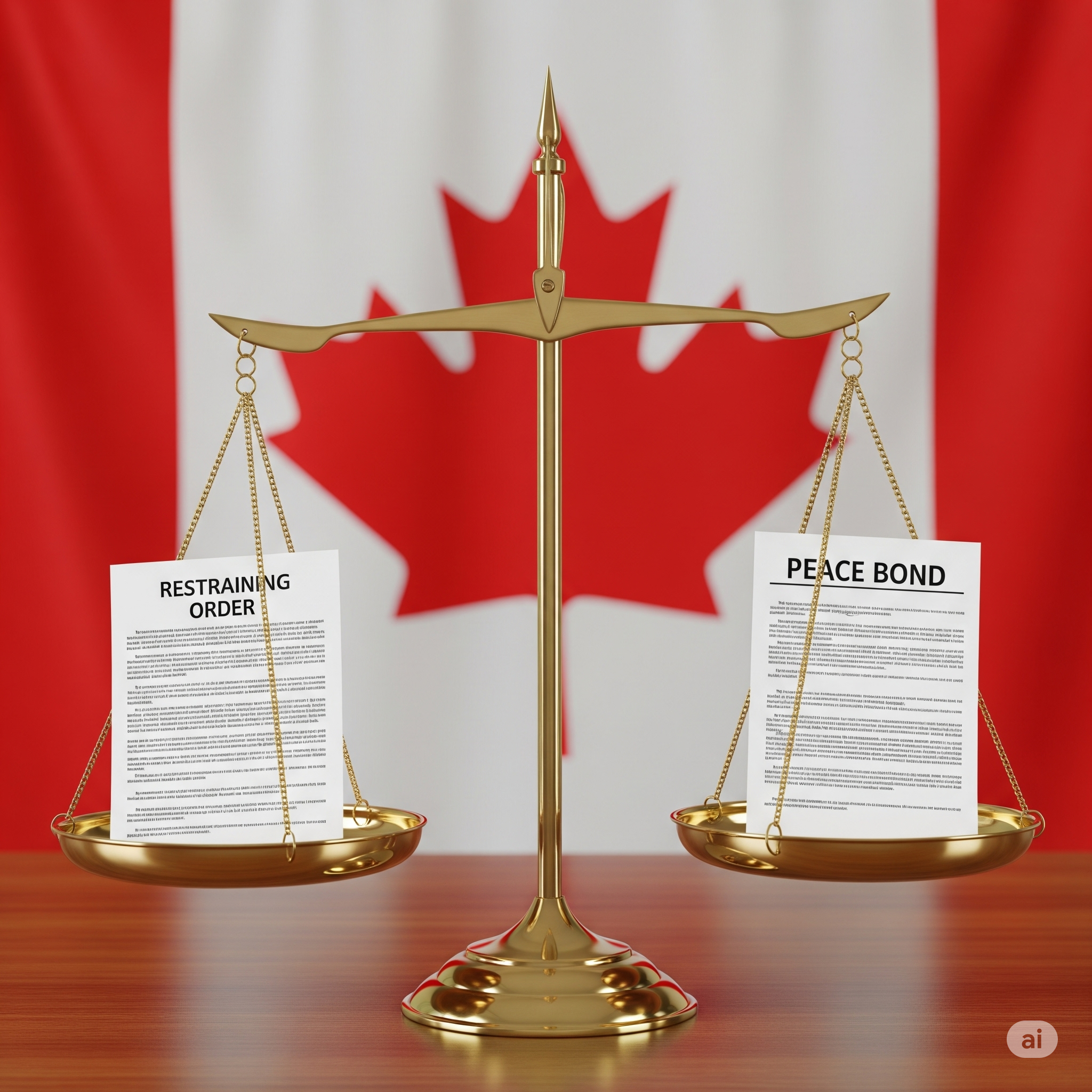Restraining Order vs Peace Bond in Ontario: What’s the Difference?
Not sure whether to request a restraining order or peace bond in Ontario? Learn the key differences between the two, including how they’re issued, how long they last, and when to choose one over the other.

⚖️ Restraining Order vs Peace Bond in Ontario: Key Differences at a Glance
• Purpose
-
Restraining Order: Civil/family protection against family or intimate partner violence
-
Peace Bond: Criminal undertaking to keep the peace and prevent future harm
• Court Jurisdiction
-
Restricting orders filed in Civil or Family Court (Forms 9C or 10)
-
Peace bonds requested in Criminal Court (via police or court appearance)
• Eligibility
-
Restraining Order: Anyone with family, cohabitation, or intimate relationship needing ongoing safety measures
-
Peace Bond: Any individual fearing personal or property harm from acquaintances, strangers, or neighbours
• Application Process
-
Restraining Order:
- Complete Form 10 (family) or Form 9C (non-family)
- File at Superior Court of Justice
- Serve respondent personally
- Attend civil/family court hearing
-
Peace Bond:
- Report fears to police
- Police lay 810 Criminal Code charge or you apply in court
- Attend criminal court (ex parte possible)
- Sign bond requiring good behaviour
• Evidence Standard
-
Restraining Order: Proof of past abuse, threats, or stalking incidents
-
Peace Bond: Reasonable fear of future harm
• Enforcement & Consequences
-
Restraining Order: Breach leads to civil contempt proceedings or conversion to criminal charges
-
Peace Bond: Breach is a criminal offence, enforceable by arrest
• Duration & Renewal
-
Restricting orders typically last 6–12 months (renewable)
-
Peace bonds last 12 months (may be renewed)
• Using Both Tools
-
You can hold a peace bond and pursue a restraining order concurrently
-
Coordination advised to avoid conflicting terms
Need Help?
-
Legal Aid Ontario: 1-800-668-8258
-
Family Law Information Centres (FLIC): Free courthouse help desks
-
Community Legal Clinics: Locate via Legal Aid Ontario directory
-
Victim Services: Police-based support and referrals
Of course. Here is a breakdown of the differences between a restraining order and a peace bond in Ontario, based on the article, along with 6 FAQs to improve its SEO ranking.
Frequently Asked Questions (FAQs)
1. What is the main difference between a restraining order and a peace bond in Ontario?
The main difference is the court system and your relationship with the other person. A restraining order is typically used in Family Court to protect you from an ex-partner or family member. A peace bond is used in Criminal Court to protect you from anyone, including a stranger, neighbour, or co-worker.
2. Which one is easier to get: a restraining order or a peace bond?
Neither is "easy" to get, but the standard of proof is different. For a restraining order, you must show evidence of past abuse or harassment. For a peace bond, you must convince a judge that you have a reasonable fear of something happening in the future. The "better" option depends entirely on your specific situation and relationship with the other person.
3. What happens if someone breaks a peace bond?
Breaching a peace bond is a criminal offence under the Criminal Code of Canada. If the person violates any of the conditions, you should call the police immediately. They can be arrested and face new criminal charges, which could result in fines or jail time.
4. Can I have both a restraining order and a peace bond at the same time?
It is unlikely you would have both against the same person for the same reasons. The two orders are designed for different situations. A legal professional can help you determine which legal tool is the most appropriate and effective for your circumstances.
5. Do I need a lawyer to get a restraining order or a peace bond?
While you can apply for either on your own, the legal process is complex. It is strongly recommended to get legal advice. A lawyer can help you gather the necessary evidence and present your case effectively in court. You can contact Legal Aid Ontario or a community legal clinic for assistance.
6. How much does it cost to get a peace bond versus a restraining order in 2025?
For a peace bond, there are typically no court fees as it is a criminal matter. For a restraining order in family court, there is a court filing fee, although you can apply for a fee waiver if you have a low income. In either case, if you hire a lawyer privately, you will have to pay their legal fees.
